Front teeth implantation

specialists

equipment

treatment

Benefits of the procedure
- Durability. Properly installed implants can last for decades, sometimes throughout life
- Aesthetics. Artificial teeth look like natural teeth, provide an attractive smile and give the patient self-confidence
- Protection of adjacent teeth. Implantation does not require treatment or trauma to adjacent healthy teeth, unlike the installation of dental bridges
- Comfort and naturalness. Implants function like natural teeth, without causing discomfort when eating or talking
- Prevention of bone tissue atrophy. Implants help maintain the health of the jaw bone tissue and prevent its atrophy
- In case of damage, the crown on the implant can be easily replaced without affecting the adjacent teeth
Osteoplasty before implantation
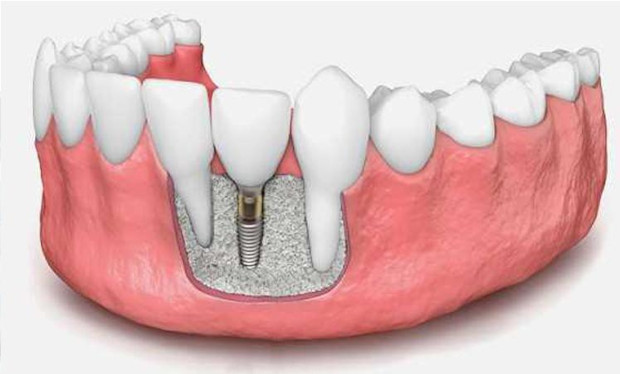
Osteoplasty is not always required before installing an implant in the anterior jaw. The procedure is prescribed if the volume of bone tissue is not enough to securely secure the implant. Indications include:
- Long-term tooth root loss
- Jaw injuries
- Osteomyelitis
Before dental implantation, it is important to conduct a comprehensive examination of the patient.
General information about the procedure
Which implants are best for the front teeth?
To achieve the best appearance and strength, doctors place narrow and long anterior implants that can be mounted at different angles. They are made from the following materials:
Abutments can be either integrated with the implant or removable. They are made from materials that match the color of natural teeth.
What implants are placed on the upper and lower front teeth? In choosing a specific implant model, a significant role is played by the individual characteristics of the patient, the quality of the material, its survival rate and aesthetic characteristics.
Among the well-known brands offering products for anterior dental implants are Straumann, Nobel and Hi TEC. Their products are highly durable, quick to survive and have a lifetime warranty.
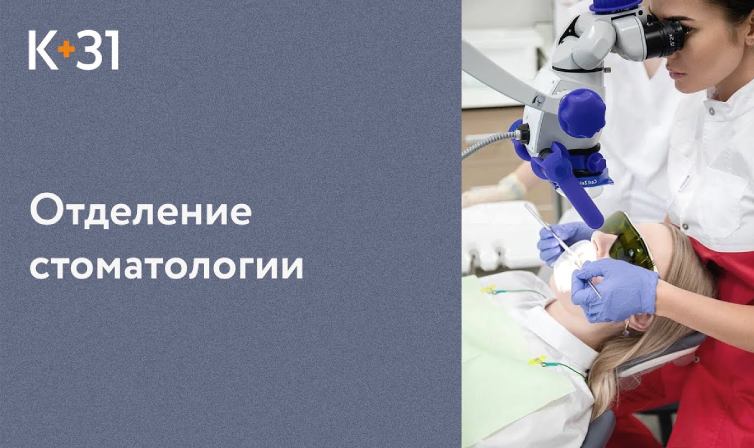
Modern methods of diagnostics and dental treatment at "K+31"
Our doctors

This award is given to clinics with the highest ratings according to user ratings, a large number of requests from this site, and in the absence of critical violations.

This award is given to clinics with the highest ratings according to user ratings. It means that the place is known, loved, and definitely worth visiting.

The ProDoctors portal collected 500 thousand reviews, compiled a rating of doctors based on them and awarded the best. We are proud that our doctors are among those awarded.
Make an appointment at a convenient time on the nearest date
Price
Other Services


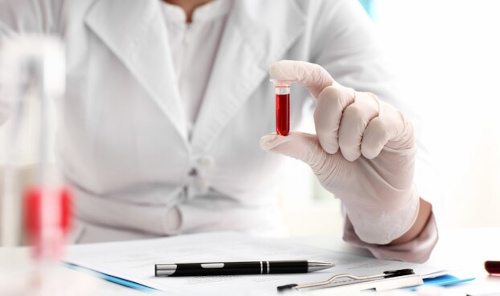
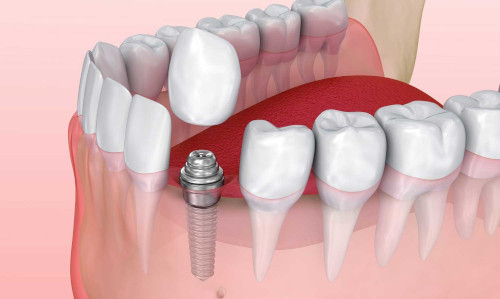



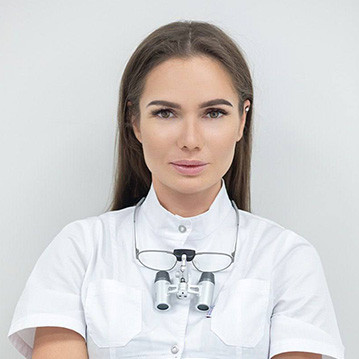
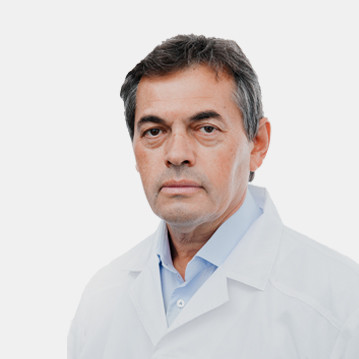

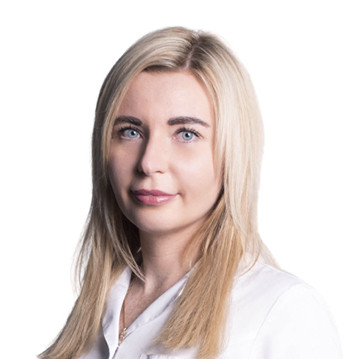
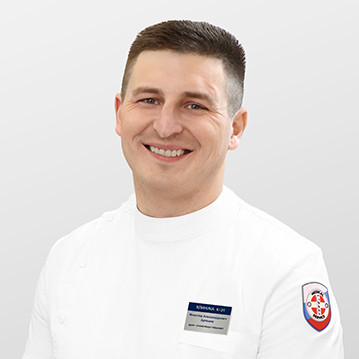






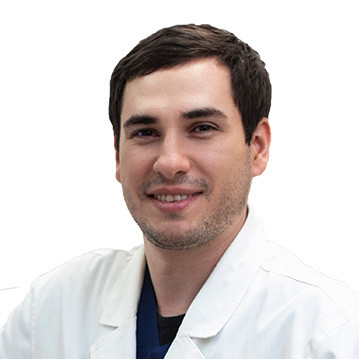

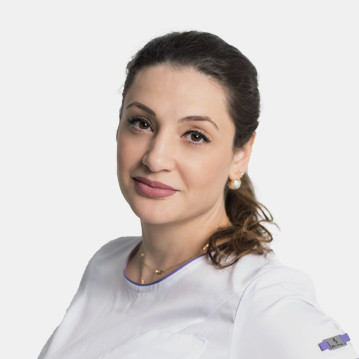
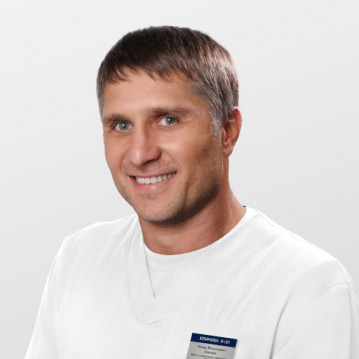
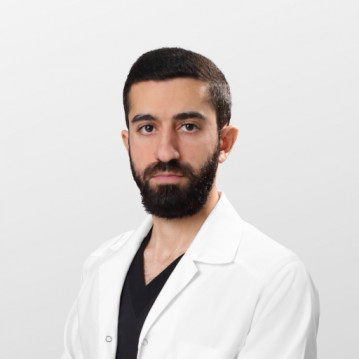



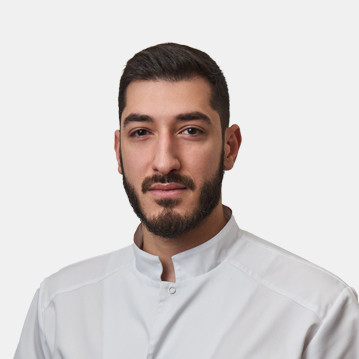


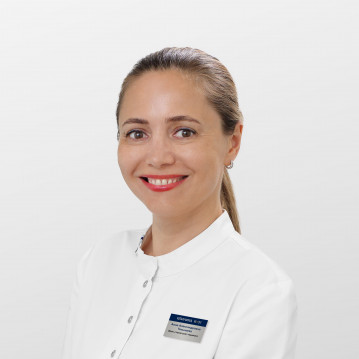
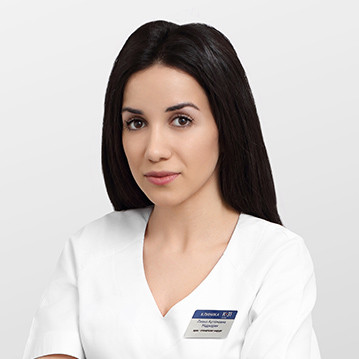
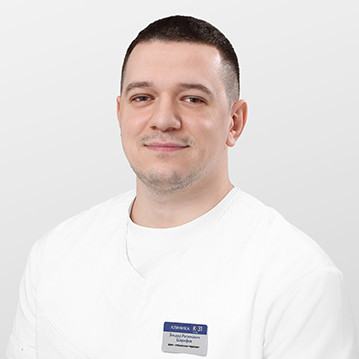
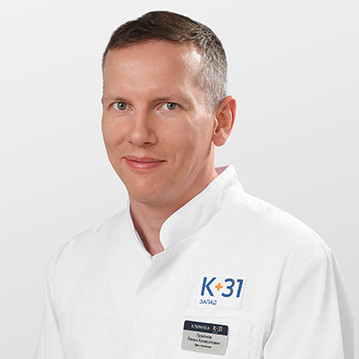



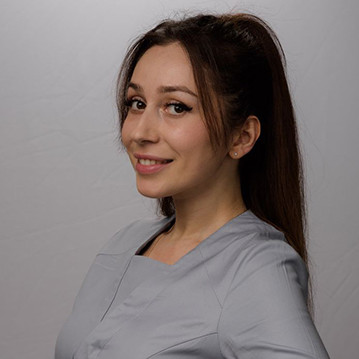



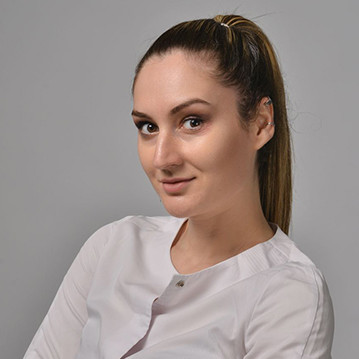

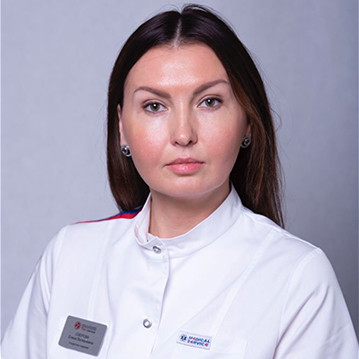









Requirements for implantation of maxillary anterior teeth
Implantation of anterior teeth requires special diagnosis and planning due to the aesthetic significance of this area. One-stage implantation is often used with the installation of an implant immediately after tooth extraction, which promotes rapid recovery. In cases of bone tissue atrophy, osteoplasty is necessary before installing an implant.
To achieve a positive result, it is important to choose the right implant. Doctors often prefer thin and long options for reliable fixation in the gums. The best option is biocompatible zirconium implants that are not visible through the gums.
Titanium models can also be used. They are durable, resistant to mechanical stress and chemical attack.
Installing anterior dental implants requires taking into account certain features. The bone tissue in this area is less dense and stable, which complicates the implantation process. In this case, preliminary bone grafting is required.
The low alveolar ridge in some patients and the proximity to the maxillary sinuses increase the complexity and risks of the procedure. Long-term osseointegration is also required, which lasts 3-4 months. Often a sinus lift is performed before implantation. Usually this stage and installation of the implant occur in one visit to the doctor.
How much does it cost to insert upper front teeth? The cost of the operation depends on three factors: the materials used, the qualifications of the dentist, and the condition of the patient’s bone tissue.